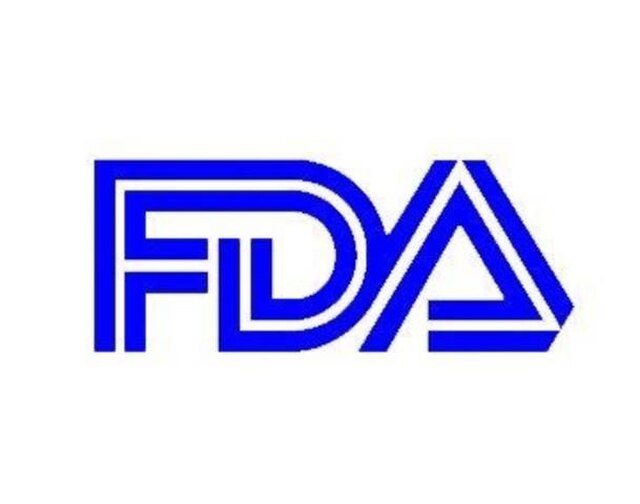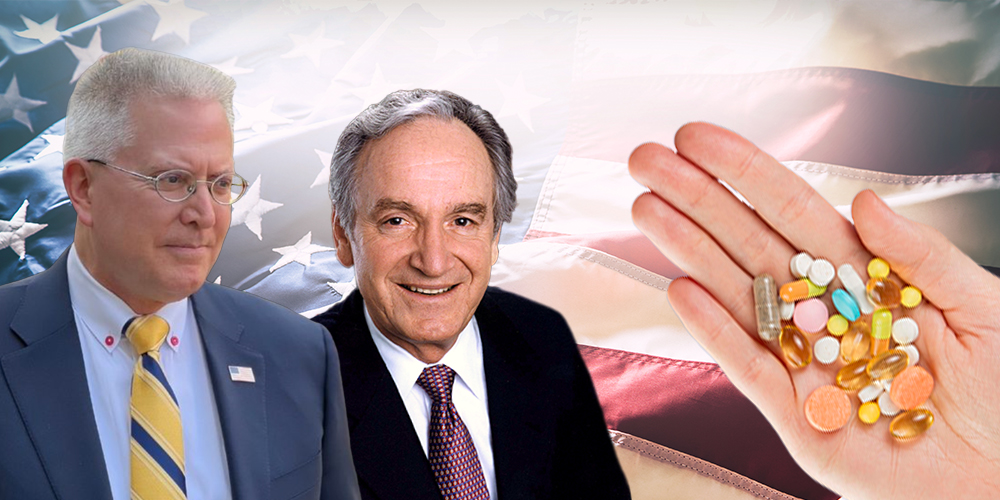A look back on the law that has guaranteed Americans unparalleled access to dietary supplements—and the threats we face moving forward. Action Alert!
Listen to the audio version of this article:
THE TOPLINE
- The Dietary Supplement Health and Education Act of 1994 (DSHEA) granted Americans broad access to dietary supplements, promoting personal choice and limiting government intervention in the supplement marketplace. It allowed supplements to be regulated as food rather than drugs, avoiding costly preapproval requirements.
- DSHEA’s passage was largely driven by public advocacy. Widespread consumer pressure, highlighted by memorable campaigns, helped secure the law’s passage to protect access to supplements.
- Despite DSHEA, there are continuing challenges from the FDA and legislative proposals that could impose stricter regulations on supplements, potentially limiting access. We need further grassroots action to oppose further restrictions and protect health freedom.
Introduction: A Vision for Health Freedom
The Dietary Supplement Health and Education Act of 1994 (DSHEA, pronounced ‘dee-shay’) is a milestone in the movement to protect access to safe and affordable dietary supplements. It is a major step in the right direction, but it is not a complete solution to ensuring protection for the public’s right to access dietary supplements and the public’s right to know their effects on health and disease.
Senators Hatch (R-UT) and Harkin (D-IA) who principally drafted DSHEA, and those who supported its passage, believed individuals should have the right to make informed decisions about their own health and wellness largely free of government prior restraint. By imposing certain limits on government intervention in the supplement marketplace, DSHEA has empowered millions of Americans to exercise far greater control over their health choices than would otherwise have been possible. This landmark legislation reflects a commitment to personal choice, innovation, and access to a wide array of vitamins, minerals, and herbal products—an achievement worth celebrating as we mark its 30th anniversary.
Under DSHEA, dietary supplements are regulated as a category of foods rather than as drugs, which means supplements are not subject to FDA preapproval. That allows consumers to access a wide range of vitamins, minerals, and herbal products without the kind of costly and extensive prior restraints commonly imposed for drug approval.
Reflecting on the passage of DSHEA, ANH General Counsel Jonthan Emord, Esq, said, “I remember well the time Patricia (“Trisha”) Knight, Chief of Staff and Senior Health Policy Advisor to Senator Hatch, asked several of us to review the draft DSHEA bill and comment. I found certain provisions in the bill objectionable but in the sausage-making that is legislating, those provisions remained in the final bill and have proven the bane of freedom of informed choice ever since.
“But all in all,” he continued, “DSHEA was a major achievement. Without it, FDA would undoubtedly have continued on an ever more aggressive course toward restricting and rendering illegal many supplements and claims concerning their effects on body structures and functions. We have complemented the law with numerous court victories over the agency. With the Trump Administration coming and Robert F. Kennedy, Jr. playing a key role, there is great hope for reversing the agency’s many, continuing abuses that interfere with our freedoms.”
Grassroots activism and the power of consumer advocacy
It should be noted that DSHEA is a testament to the power of grassroots activism. In the early 1990s, there was widespread consumer concern about potential over-regulation of supplements, which led to significant public pressure on Congress to pass legislation that preserved consumer access to dietary supplement products. Many still remember the short television ad used to promote passage of the bill featuring Mel Gibson being arrested by federal agents for possessing Vitamin C. ANH-USA was part of the grassroots network speaking out loudly in support of the need for freedom of access to supplements and in favor of federal legislation to restrain FDA abuses. More members of the public sent in letters to Congress in favor of the DSHEA than any other single piece of legislation prior to its passage.

Recently, former Senator Tom Harkin spoke to the point in comments he delivered at SupplySide West commemorating the 30th anniversary of the law: “Consumers [flooded] Congress with letters and phone calls. Consumers would show up at their town meetings, and this would be a big issue at all of our town hall meetings.”
Voicing what many of us feel, and what ANH has said for decades, Harkin went on to say, “I’ve often said that DSHEA represents my fundamental belief, going way back, that in America we have a ‘sick care’ system, not a ‘health care’ system. In America, it’s easy to be unhealthy and hard to be healthy. It ought to be the other way around.”
The overall safety record of dietary supplements is a testament to the fact that DSHEA has served us beautifully. The safety record for supplements is indisputable. Dietary supplements boast a consistent and remarkable safety profile making them many times more safe than conventional foods. Data from the American Association of Poison Control Center’s National Poison Data System (NPDS) typically show, year on year, that zero Americans die from taking dietary supplements.
Challenges from the FDA and ongoing threats
But for every action, there is a reaction. After DSEHA became law, the FDA commissioner at the time, Dr. David Kessler, was reportedly “so infuriated by the enactment of DSHEA that he ordered the FDA not to enforce the new law.” Former FDA officials subsequently admitted that the goal of this policy of non-enforcement was to allow the worst aspects of the supplement industry to run wild in hope that the law would be repealed.

Thankfully, that never came to pass, but the FDA’s animus towards supplements remains with us today and has been growing of late as Big Pharma increasingly focuses on biologic and biosimilar drugs, including peptides. Nowhere is that more apparent than in the agency’s implementation of a key provision of DSHEA, the treatment of so-called “new dietary ingredients.” Essentially, these are “new” supplements that came to market after 1994.
As we’ve written many times, DSHEA calls for a notification system for “new” supplements, but the FDA has, for years, been working on what is really a de facto pre-approval system for new supplements, with requirements for expensive safety studies and the creation of extensive dossiers on new ingredients. This represents a major barrier to market entry that most supplement companies simply cannot afford—the complete antithesis of DSHEA’s plain and intended meaning, which aimed to expand, not restrict, access to supplements. In fact, an economic analysis of the FDA’s proposed “new” supplement requirements estimated that it would eliminate more than 41,000 products from the market.
We’ve also seen efforts by longtime supplement opponents like Senator Dick Durbin (D-IL) to undermine DSHEA by imposing major new regulatory requirements on supplements. These requirements would march us ever closer to European-style restrictions on supplements which, again, is the complete opposite of what Congress intended in passing DSHEA.
Call to action
With your help, we’ve defeated these legislative attacks on dietary supplements numerous times over the last 30 years, and we will continue to serve as a force for individual liberty and health freedom so we may each make our own health choices free of government paternalism.
Let’s celebrate DSHEA’s 30th birthday by sending a clear message to Congress: the safety of supplements is indisputable, and we do not need Senator Dick Durbin’s anti-supplement policy!
Action Alert! Write to Congress and tell them to oppose mandatory product listing for supplements. Please send your message immediately.





Thank you for this information. I have been advocating for the choice of having dietary supplements since the early 90s. We had no internet yet and I wrote letters to then politicians Mark Hatfield, Bob Packwood, Elizabeth Furse and David Wu from Oregon and they all responded to my letters professionally, stating that dietary supplements would not be restricted. I still have those letters and I will continue to fight to make sure dietary supplements are not restricted. Thank you.
You mention the Gibson PSA, which arrived at the very end of the process, but not surprisingly, you have forgotten to mention the role my film ‘LET TRUTH BE THE BIAS’ served in the passage of DSHEA. The film, narrated by the great, dearly departed James Earl Jones, was released in late 1993, and we established rallies (featuring both my film and many local speakers) in nearly 100 American cities.
‘LET TRUTH BE THE BIAS’ was a centerpiece of this campaign; it featured both Senators Hatch and Harkin (who were the primary authors in the Senate), Rep. Bill Richardson (Democrat from NM, who authored the bill in the House of Representatives), the new head of what was then called the ‘Office of Alternative Medicines’ at NIH, and many others.
The film sold 30,000+ copies – and all of the profit was donated to the precursor of what is now called ANH in order to get DSHEA passed.
Sen. Howard Metzenbaum (D-OH) phoned me a month before the passage of DSHEA and said, “Kevin, can you tell me why I have had 100 copies of your film sent to my office?” After our nationwide campaign, the DSHEA bill passed 99-1 in the Senate. When was the last time that ANY bill passed 99-1?
Lastly, giants like Joe Bassett, a healthfood store owner and President of what was then called the NNFA was instrumental in marshaling forces and helped turned HF stores into “education centers” on DSHEA nationwide. He passed away a decade ago and deserves to be remembered alongside Hatch-Harkin-Richardson and a few others. Hopefully, health freedom will progress and protect and expand access moving forward.